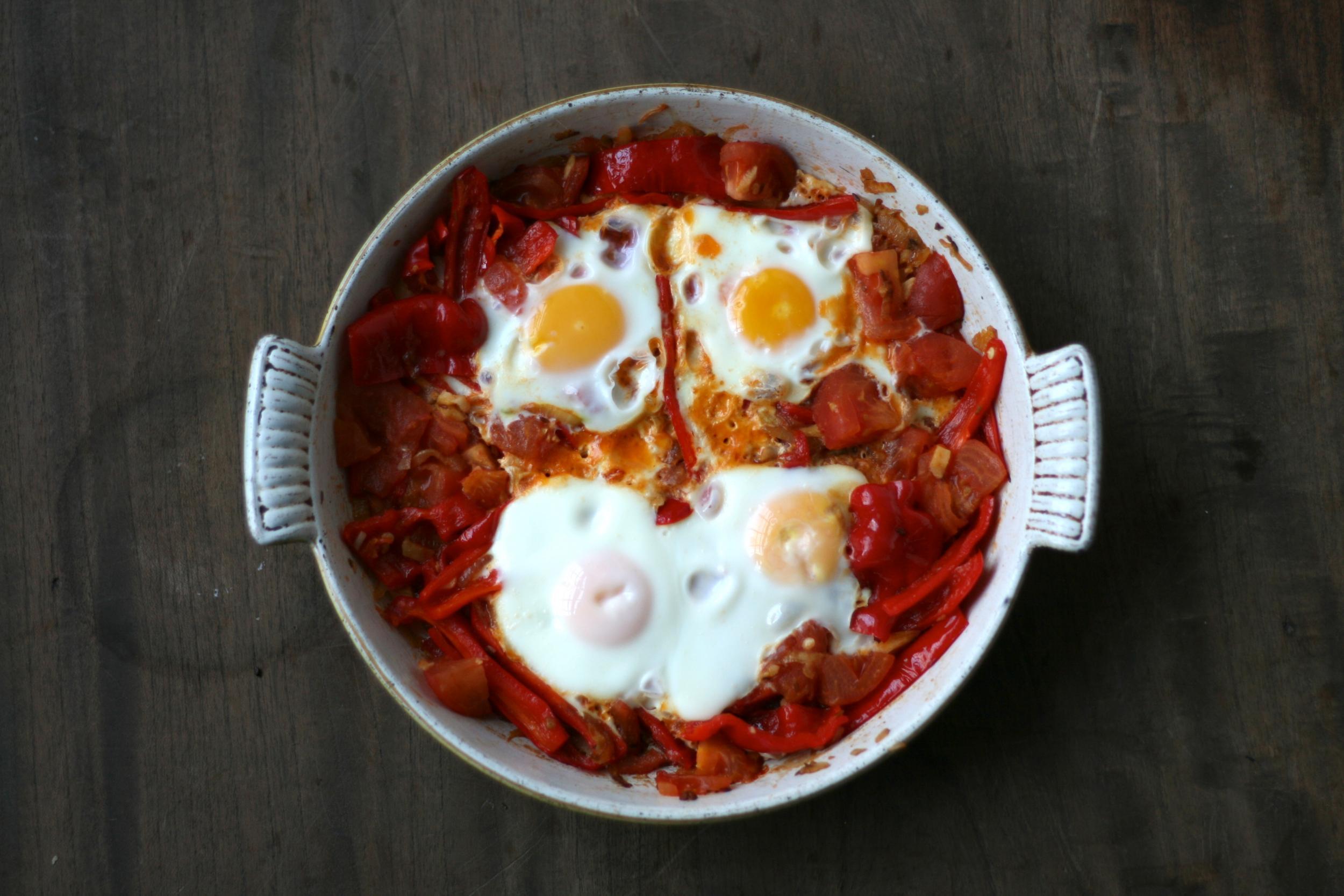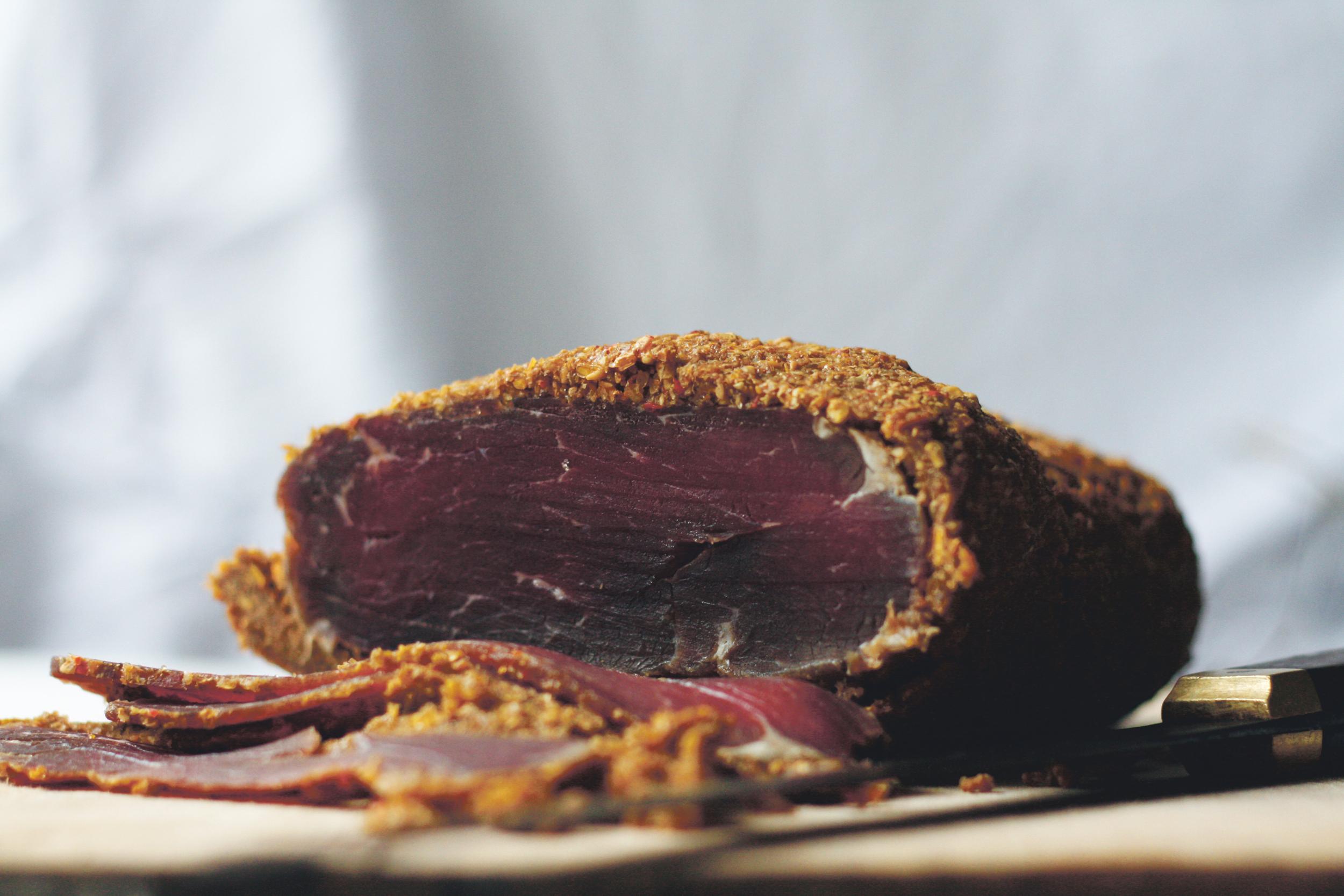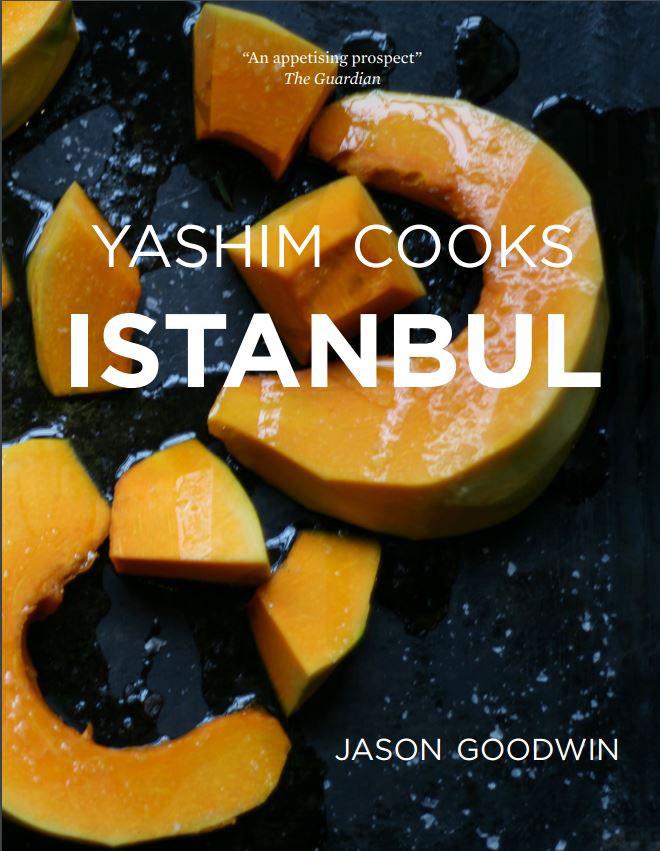Yashim Cooks Istanbul: Culinary Adventures in the Ottoman Ki
Historian Jason Goodwin has taken a break from crime writing to unearth some 19th-century recipes from Istanbul

Fiery eggs and peppers
With an egg or two slipped on top, menemen is a dish that sustains truckers and sailors across Turkey, somewhere between breakfast and a snack lunch. It concentrates all that is simple, delicious and colourful about the eastern Mediterranean. Without eggs, the peppery dish makes a good hot accompaniment to rice and meat, or can be eaten cold as a meze.
2 tbsp olive oil
1 onion, halved and sliced
2 garlic cloves, crushed
2 peppers, red, yellow or green, sliced lengthways
1 fresh red chilli, sliced, or 1 tsp kirmizi biber
2 tomatoes, peeled and chopped
½ tsp sugar
½ tsp each of salt and pepper
4 eggs
On a medium heat, set the onion to melt in the olive oil. When it becomes translucent, add the garlic. Stir it around for a few moments and then add the peppers, with the chilli or kirmizi biber. Let the peppers soften before adding the tomatoes and sugar. Cook for another ten minutes or so to reduce the liquid, sprinkle with salt and pepper, and make four hollows in the sauce with the back of a spoon. Crack an egg over each hollow, it doesn’t matter if the whites run, as they will. Cover the pan and cook for a couple of minutes, until the whites are set.
Menemen is served with yoghurt garlic sauce, a sprinkling of chopped parsley, and fresh toast at breakfast time. Try it with coriander seeds, too, scattered in the pan as it heats up and crushed with the back of a wooden spoon before the oil goes in.

Lahmacun: lamb and tomato flatbreads
Also known as Turkish pizza, lahmacun is a soft thin dough spread with delicious spicy lamb. You can use this recipe to make any size you like; four, two, or even a dozen little meze lahmacuns to nibble with drinks.
For the flatbreads
350g strong white flour
½ tsp salt
1 tsp fast-acting yeast
150ml warm water
For the topping
2 tbsp olive oil
2 tbsp pomegranate molasses
2 garlic cloves, squashed and chopped with salt
1 onion, grated
250g minced lamb
2 tsp kirmizi biber
2 tsp chopped fresh mint, or 1 tsp dried
1 onion, sliced into rings
2 tomatoes, sliced into rings
1 tsp sumac
A bunch of parsley, chopped
1 lemon
Salt
Start with the dough. Put the flour, salt and yeast into a mixing bowl, add warm water little by little and work it until it forms a ball. Knead the ball on a floured surface for five to 10 minutes, until it is springy and smooth. Return to the bowl, and cover with a damp cloth somewhere warm.
For the topping, mix the first seven ingredients together in a bowl. Refrigerate. In an hour, your dough will have doubled in size. Rub two baking trays with olive oil and put them in the oven, setting it to 220C. Knock back the dough, knead it briefly on a floured board, and divide it into two, four, or more pieces. Roll and stretch each piece into a circle, pulling the dough with your hands. Spread a thin layer of the topping onto each lahmacun, and scatter with the sliced onion and tomato rings. Give them a little drizzle of oil and pop them into the oven as quickly as you can, to stop the heat escaping.
Check the lahmacun after 20 minutes: the meat should be cooked. Sprinkle them with the parsley, the sumac and a squeeze of lemon, and share them round.

Pastirma: pressed beef
The Turkish horsemen of central Asia used to preserve meat in pockets on the sides of their saddles, pressing it with their legs as they rode. Pastirma means “pressed” and this pressed, dry-cured beef off the steppe is the origin of the Italian pastrami and consequently the mainstay of a thousand New York delis. The best pastirma comes from Kayseri in central Turkey – Evliya Celebi, the great and witty traveller, recommended it in the 17th century. Most of it is eaten in Istanbul. If you want to have a go making your own, it’s not very difficult but requires patience and a fortnight. The best quality pastirma is made with fillet but topside can be used, too. Given the effort, it is worth starting with the very best beef you can afford.
1kg fillet of beef (or topside)
Plenty of fine sea salt
8 tbsp fenugreek seeds, ground
65g red pepper, diced
15g hot chillies, chopped
100g garlic cloves, peeled
2 tsp cumin, ground
Trim the fillet to remove any fat, then rinse it and pat it dry. Lay the meat out flat in an earthenware dish and cover it with salt. After four hours or so, rinse the fillet, chuck the salt, and start again. This time, place a layer of greaseproof paper over the top, cover with a board, and weigh the board down with something heavy – a pan of water, a stone, whatever. Put the fillet somewhere cool, or in the fridge.

Every day, for the next two weeks, pour away the brine formed as the salt draws out the moisture from the beef, and replace with fresh salt. Once the salt stays dry, wash it off, and put the fillet in a pan of cold water overnight. Next day, pat the beef dry and hang it for a couple of days in a cool, dry place in your larder would be ideal, or a chilly barn, but the porch or a fridge is fine.
Now make the paste, called Cemen, whizzing the remaining ingredients together in a food processor or bashing them in a mortar, then adding water to make a sticky paste. Work the paste into the meat, coating it entirely. Hang it up again, where the air can get at it – the fenugreek and the garlic seem to stop flies – for 24 hours in hot weather, two or three days if it is cold. The Cemen paste should be tacky, and the meat itself hard, but not without some give when you press it.
Wrap the pastirma in a cheesecloth and keep it in the fridge. It can be served in very thin slices as a cold hors d’oeuvre, or cooked with eggs and tomatoes. You can eat it on toast or pop it into the bean stew.
‘Yashim Cooks Istanbul’ by Jason Goodwin (Argonaut Books, £25)
Join our commenting forum
Join thought-provoking conversations, follow other Independent readers and see their replies
Comments